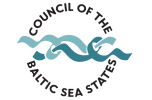On 18-19 January 2024, the joint meeting of the Security and Defence Committee and the Economics, Energy, and Innovation Committee of the Baltic Assembly took place in Riga, Latvia.
During the first session of the joint meeting, parliamentarians, government representatives and experts discussed having a common approach to the protection of critical infrastructure in the Baltic States. Vice Chair of the Security and Defence Committee Uģis Rotbergs opened the meeting by highlighting that the protection of critical infrastructure is high on the agenda of the Baltics as they are searching for ways to ensure the smooth functioning of critical infrastructure and prepare for possible risks in the region. He emphasized that as the Baltic countries face similar challenges, cooperation and sharing of lessons learned are of utmost importance.
Director of the Center for Geopolitical Studies Riga and Associate Professor at Riga Stradins University Māris Andžāns informed the participants about the book “Critical Infrastructure in the Baltic States and Norway: Strategies and Practices of Protection and Communication”, which explores the approaches of all four countries to protecting and communicating critical infrastructure. He noted that after the analysis of the four systems it was concluded that critical infrastructure systems have to be constantly reevaluated to be ahead of emerging risks. It is also necessary to emphasize the critical functions, not just specific objects, and to avoid placing unnecessary burdens on the private sector to avoid uneven levels of protection.
Afterwards, the government representatives informed about the level of protection of critical infrastructure in the Baltic States. Experts and parliamentarians concluded that it is essential for the Baltics to cooperate in this area as they all have the same goal - to ensure that the infrastructure can provide essential services at all times. The need to implement cross-border joint protection measures and develop new interconnections not just with the other Baltic countries, but also with Finland, Sweden and Poland was also emphasized.
During the second session of the meeting, Vice Chair of the Economics, Energy and Innovation Committee Andris Kulbergs highlighted the crucial role that the transport sector plays in the Baltic States. “Historically, the Baltic Sea region has acted as a major transport corridor both in itself and for the rest of the world. Despite this, we can see that in some parts connectivity and accessibility are still lagging. Currently, the biggest missing link is the railway connection towards the West. The implementation of the Rail Baltica project is expected to solve this missing link and ensure better connectivity,” he stated.
Each governmental representative informed about updates on operating cross-border transport connections and gaps in the Baltic States. Minister of Transport of Latvia Kaspars Briškens highlighted that logistics in the Baltics are well developed, constantly improving and developing new and higher value-added services. Cooperation within the existing rail infrastructure is also of the essence and projects such as the Amber Train or Ukrainian grain transport need to be developed. Head of the International Cooperation Group at the Ministry of Transport and Communications of Lithuania Gytis Mažeika agreed that Ukraine is very important for the region, therefore, the Baltic States should work towards developing a more European and Ukraine-engaged transport network. Head of Mobility Development and Investments Department at the Ministry of Climate of Estonia Eva Killar also emphasized the importance of the cooperation between Baltic Sea ports and added that it could take place through the creation of green corridors to create more environmentally friendly seaports for the future.
Lastly, the Chief ESG Officer and Vice-Chairperson of the Management Kitija Gruškevica reported on the current and future challenges of the Rail Baltica project. She noted that there is no more question if Rail Baltica is needed – it is clear to all that the project is a necessity. At the same time, support is still needed from the parliaments of the Baltic States to endorse the implementation of the project through legislative changes, for example, for improving the conditions for the construction of engineering communications, drainage facilities as well as environmental procedure execution.
Photos
© Ieva Ābele, Latvijas Republikas Saeima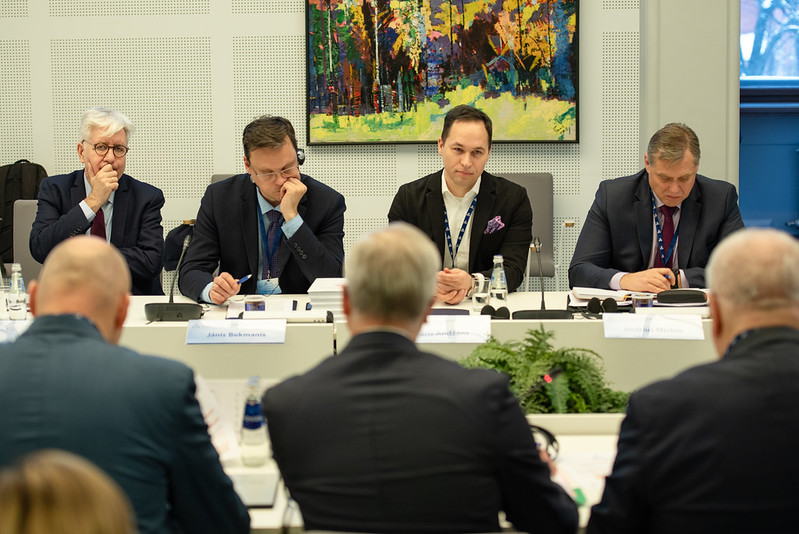
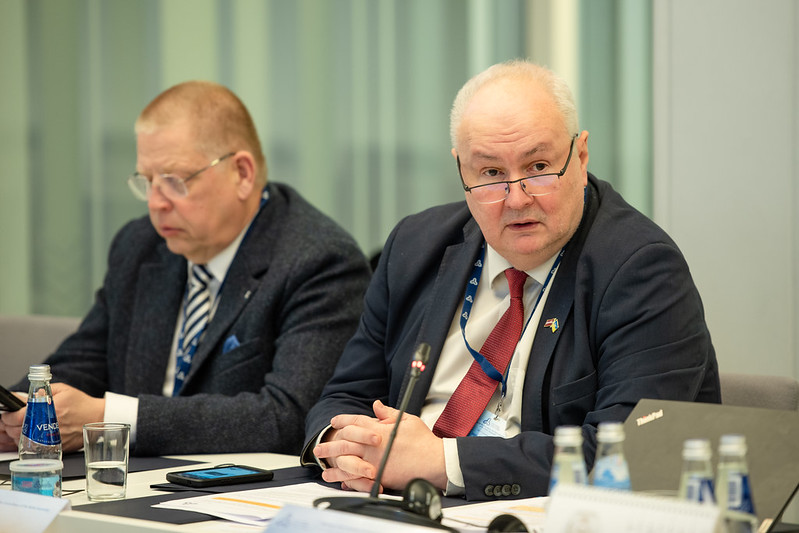
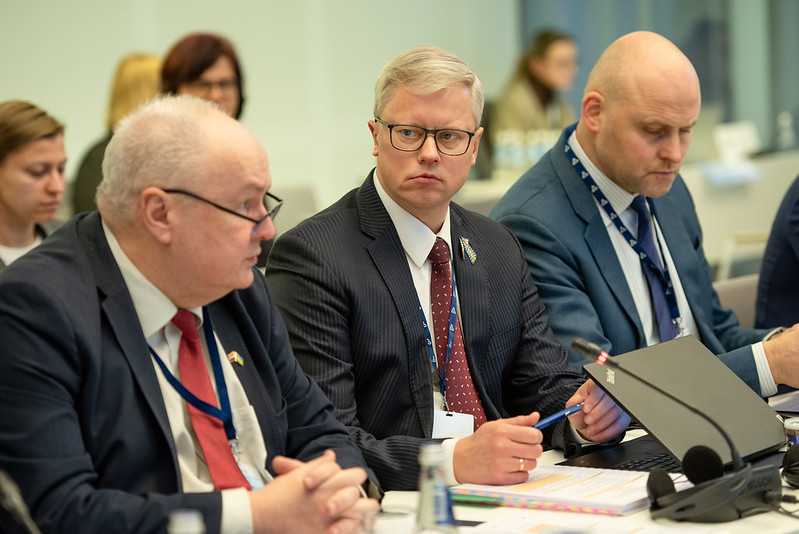
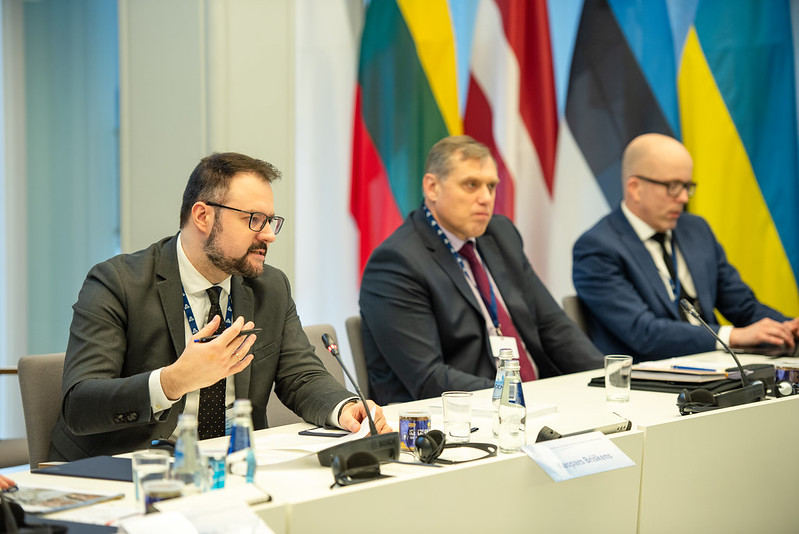
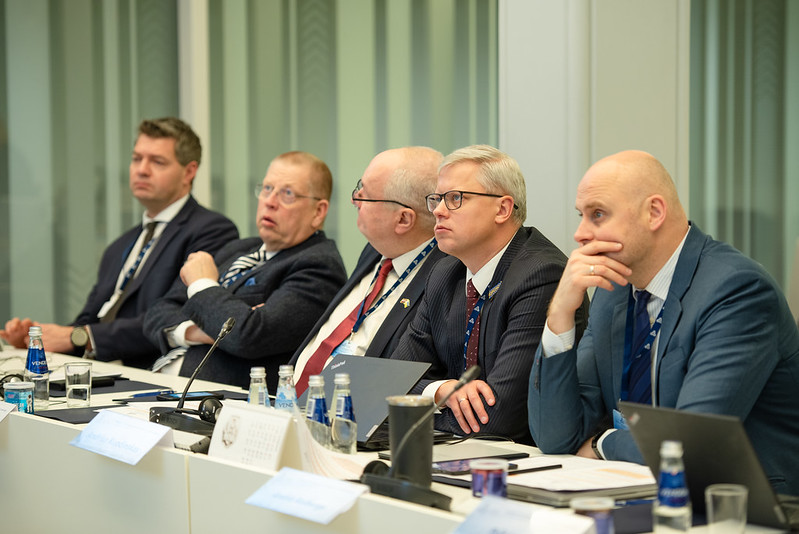
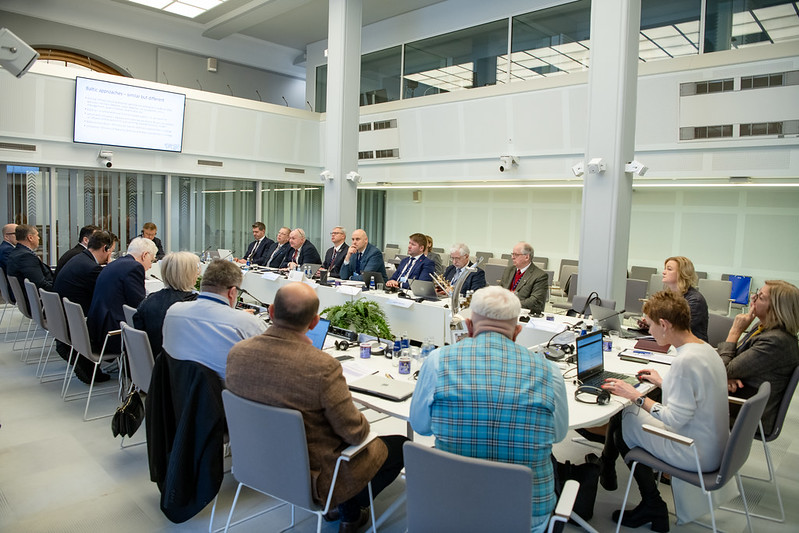
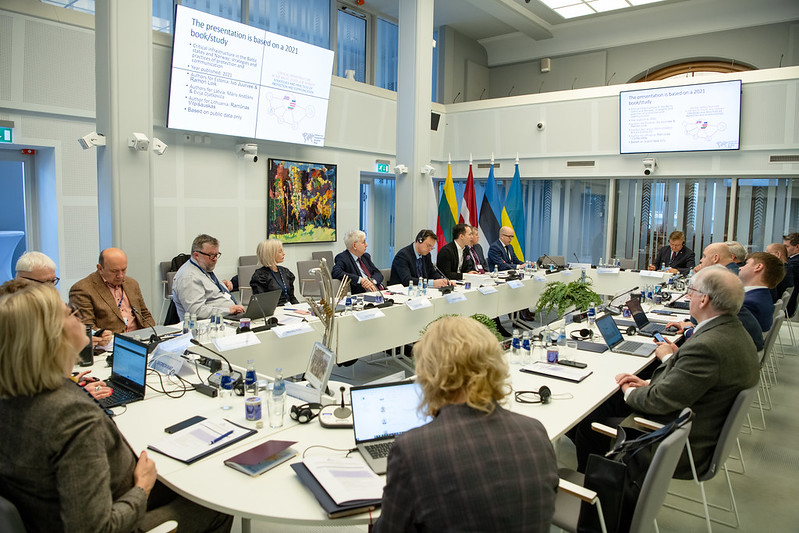
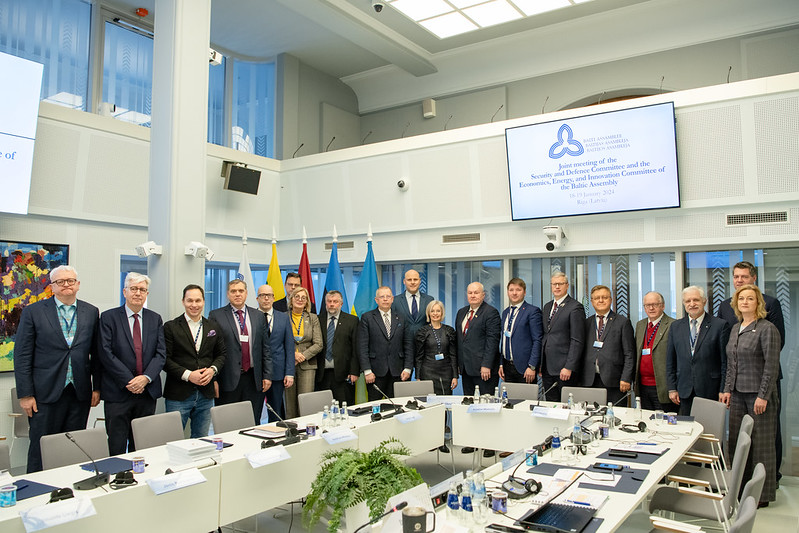
 Print
Print 








